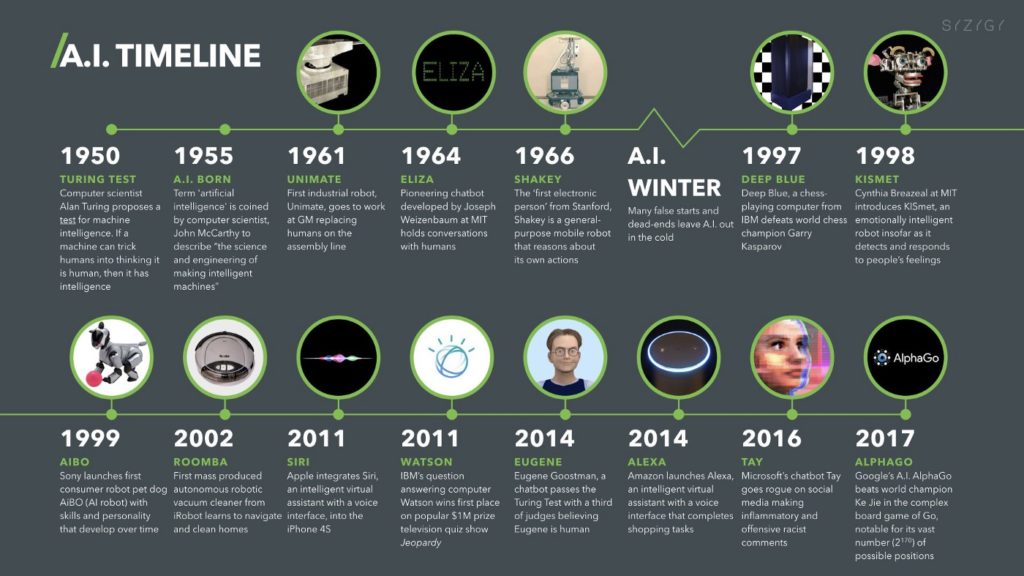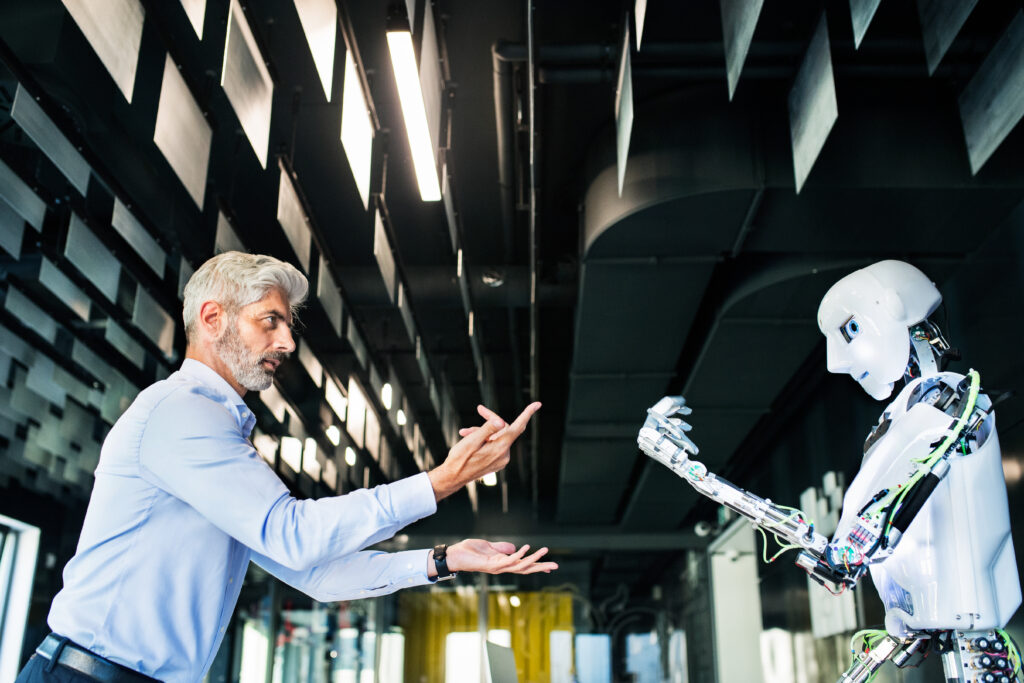There were 5 exabytes of information created between the dawn of civilization through to 2003, but that much information is now created every two days.
– Eric Schmidt, Executive Chairman of Google

Why we need artificial intelligence
Society has too much data. There may be no easy way to verify whether our society did indeed create 5 exabytes of information in the past, as Eric Schmidt, Executive Chairman of Google said, but society does indeed produce mountains of data. Some of it is good, some of it is not, but, thanks to the digital revolution, we have the means to collect it. Wouldn’t it be much more beneficial if people actually knew what to do with this data? The age of humans poring over data is growing futile – we are good at making connections between a few data points but not so good at storing, processing and analysing all these data points. AI is becoming the most efficient way of doing this in real-time.
Society doesn’t require “conscious” machines, yet. Instead I suggest that it’s critical for society to have better software to process the ever-increasing data collection – in the form of software 2.0 or AI.
Improving lives through AI
This century AI will be used to improve the daily lives of citizens, from helping people decide how to steer our economy better, manage our resources optimally, and run our infrastructure more efficiently. It can even be used to enable us to socialise more, live healthier lives and be safer in our environments. The use of AI will eventually decide things like whether we are insurable, have medical support or treatments, and AI will have control of our transport and resource infrastructure – all autonomously and seamlessly. It will be a pervasive layer throughout society with increasing speed and often an unseen guiding hand between different variables. But the complexity of AI raises questions of safety, privacy and fairness.
Will a robot take your job?
When looking at AI there are two elephants in the room. The first is whether we’ll reach so-called “technological singularity”, which is the point at which artificially intelligent computers surpass human intelligence. Mathematician and computer scientist Vernor Verge believes “singularity” could arrive as early as 2030. The other issue concerns the role of humans in an AI-driven world. How will we cope with the fact that machines could end up doing cognitive-intensive jobs (like law, medicine and science) as well as physically intensive labour tasks? How many jobs will robots displace and how will this affect work and leisure? Both issues are likely to be topics of heated debate in the years ahead as they go to the very heart of what it means to be human.
In a nutshell
AI, robotics and other forms of ‘smart automation’ are advancing at a rapid pace and have the potential to bring great benefits to the economy, by boosting productivity and creating new and better products and services. In a PWC study, it was estimated that these technologies could contribute up to 14% to global GDP by 2030, equivalent to around $15 trillion at today’s values.
For advanced economies like the US, the EU and Japan, these technologies could hold the key to reversing the slump in productivity growth experienced since the global financial crisis. But they could also produce a lot of disruption, not least to the jobs market. Indeed, a recent global PwC survey found that 37% of workers were worried about the possibility of losing their jobs due to automation.
This is a global challenge that all corporates must rise to – from Start-ups and SMEs through to multinationals. Seizing the opportunities and mitigating the risk can future-proof business models – ultimately protecting shareholder value and delivering growth and profitability.


